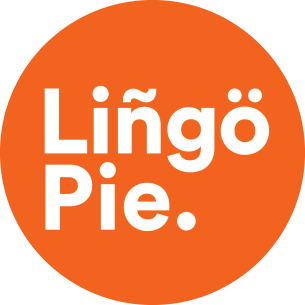Ever wondered why your Spanish friend calls their father "papá" while your Korean colleague says "appa"? Or maybe you're planning to surprise your dad with a Father’s Day card that shows off your cultural knowledge?
In this comprehensive guide, we’ve gathered over 80 ways to say "dad" from languages across six major language families. Our research involved consulting with native speakers, language teachers on our team, and linguistic databases to ensure accuracy and cultural context. Each entry includes pronunciation guidance, cultural notes about usage, and insights into when these terms are most commonly used
- 20+ Gen Alpha Slang And What They Mean [Guide]
- How To Say Love In Different Languages [120+ Ways]
- 80+ Ways To Say Mom In Different Languages

Why Do So Many Languages Have Similar Words for "Dad"?
The answer lies in the very first sounds babies can make. Sounds like "ba," "pa," "da," and "ta" are among the earliest vocalizations infants can produce because they require minimal tongue coordination. While "ma" and "na" sounds (which often become words for "mom") come first through nasal passages, "pa" and "ba" sounds emerge when babies start making sounds through their mouths.
Parents naturally assign meaning to these early sounds, and since "ma" typically goes to mothers, "pa," "ba," and "da" sounds often become associated with fathers.

Germanic Languages
The Germanic language family gives us some of the most recognizable "dad" terms for English speakers. These languages share ancient roots, which explains why many sound familiar even if you've never studied them.
English
Dad, Daddy, Father, Papa, Pop
These range from the formal "Father" used in official contexts to the casual "Dad" for everyday family life. "Daddy" is typically used by young children, while "Pop" and "Papa" carry a warm, slightly old-fashioned feel that many families love.
German
Papa, Papi, Vater
"Vater" is the formal term you'd use in official documents, while "Papa" is the go-to for family conversations. "Papi" adds an extra layer of affection and is commonly used by children and in intimate family settings.
Dutch
Papa, Vader, Pa
"Vader" serves as the formal equivalent, but most Dutch families stick with "Papa" or the shortened "Pa" for daily interactions. The pronunciation varies slightly between regions, with some areas favoring a harder 'p' sound.
Swedish
Pappa, Far, Farsa
"Pappa" dominates in modern Swedish families, while "Far" appears more in formal contexts or literature. "Farsa" is a casual, slightly playful variant that's gained popularity among younger generations.
Norwegian
Pappa, Far Similar to Swedish, "Pappa" is the warm, everyday choice, while "Far" is more formal. Norwegian families often switch between both depending on the situation and their family's personal style.
Danish
Far, Fader
Danish flips the script—"Far" is actually the common family term, while "Fader" appears in formal or religious contexts. The pronunciation has a distinctly Danish soft 'r' that gives it a gentle sound.

Romance Languages
Romance languages evolved from Latin, and their words for "dad" show this beautiful shared heritage. You'll notice how "papa" appears across these languages, though each culture has added its own flavor.
Spanish
Papá, Pá, Papi, Tata
"Papá" is the standard choice across Spanish-speaking countries, while "Papi" adds warmth and affection. "Tata" appears in some Latin American regions and carries a particularly endearing tone that children often use.
French
Papa, Père, P'pa
"Papa" handles most family situations, while "Père" appears in formal contexts or when talking about someone else's father. "P'pa" is a casual contraction that French families use in quick, everyday moments.
Italian
Papà, Babbo, Papino
"Papà" works nationwide, but "Babbo" is distinctly Tuscan and carries regional pride. "Papino" is a diminutive that adds extra affection, often used by daughters or in particularly tender family moments.
Portuguese
Pai, Papai, Paizinho
"Pai" is the standard Brazilian and European Portuguese choice, while "Papai" adds warmth similar to "daddy" in English. "Paizinho" is an affectionate diminutive that translates roughly to "little daddy."
Romanian
Tată, Tati
Romanian stands out with "Tată" as the primary term, while "Tati" serves as the more affectionate, casual version. Both carry the warmth that Romanian families are known for.
Catalan
Pare, Papa
"Pare" is the traditional Catalan term, while "Papa" reflects Spanish influence in bilingual households. Many Catalan families switch between both depending on the context and their linguistic preferences.


Slavic Languages
Slavic languages share fascinating similarities while maintaining distinct cultural identities. The "papa" pattern appears here too, but with unique Slavic touches that reflect each culture's character.
Russian
Папа (Papa), Папочка (Papochka), Батя (Batya)
"Papa" is the standard family term, while "Papochka" adds a diminutive ending that Russians use to express extra affection. "Batya" is more casual and often used between adult children and their fathers.
Polish
Tata, Tatuś, Ojciec
"Tata" is the warm, everyday choice, while "Tatuś" adds a diminutive ending that Polish speakers love using. "Ojciec" is formal and appears in official contexts or when showing particular respect.
Czech
Táta, Tatínek, Otec
"Táta" dominates family conversations, while "Tatínek" is a sweet diminutive form. "Otec" serves formal purposes and appears in official documents or respectful discussions.
Croatian
Tata, Tato, Otac
"Tata" is the go-to family term, with "Tato" as a casual variant. "Otac" handles formal situations and reflects the respect that Croatian culture places on family hierarchy.
Ukrainian
Тато (Tato), Батько (Batko)
"Tato" is the primary family term that Ukrainians use in daily life. "Batko" is more traditional and often appears in folk songs and cultural expressions that celebrate Ukrainian heritage.
Serbian
Тата (Tata), Отац (Otac)
"Tata" serves as the everyday family term, while "Otac" is more formal. Serbian families often use "Tata" with warmth and familiarity that reflects the culture's strong family bonds.

Asian Languages
Asian languages showcase incredible diversity in how families express paternal relationships. From tonal languages to complex honorific systems, each culture brings unique approaches to this universal concept.
Mandarin Chinese
爸爸 (Bàba), 父亲 (Fùqīn), 老爸 (Lǎobà)
"Bàba" is the standard family term used across China and Chinese communities worldwide. "Fùqīn" is formal and appears in official contexts, while "Lǎobà" is casual and often used by adult children with affectionate familiarity.
Beyond standard Mandarin, Chinese regions have distinctive terms. Southern dialects often use "Ābà," while northern regions might say "Lǎodiē," showing China's linguistic diversity.
Japanese
お父さん (Otōsan), パパ (Papa), 父 (Chichi)
"Otōsan" is the respectful standard that works in most family and social situations. "Papa" reflects Western influence and is popular with younger families, while "Chichi" is used when talking about one's own father to outsiders.
Korean
아버지 (Abeoji), 아빠 (Appa), 아버님 (Abeonim)
"Abeoji" is formal and respectful, while "Appa" is the warm, casual choice that K-drama fans worldwide recognize. "Abeonim" adds extra formality and respect, often used when speaking about someone else's father.
Vietnamese
Bố, Ba, Cha
"Bố" is the most common modern term, while "Ba" is traditional and still widely used in many families. "Cha" appears in formal contexts and carries a respectful tone that Vietnamese culture values.
Thai
พ่อ (Phɔ̂ɔ), ปู่ (Pùu)
"Phɔ̂ɔ" is the standard term used across Thailand, while "Pùu" specifically refers to paternal grandfathers. Thai has complex honorific systems, so the tone and context matter significantly.
Tagalog (Filipino)
Tatay, Papa, Ama
"Tatay" or "'tay" is distinctly Filipino and carries cultural pride, while "Papa" shows Spanish colonial influence. "Ama" is more formal and appears in traditional or respectful contexts.
Indonesian
Ayah, Bapak, Papa
"Ayah" is the most common choice across Indonesia's diverse regions. "Bapak" can mean both "father" and "sir," showing respect, while "Papa" reflects international influence in urban areas.
Hindi
पापा (Papa), पिता (Pita), बाप (Baap)
"Papa" dominates in modern Indian families, while "Pita" is more formal and traditional. "Baap" is casual and often used in informal conversations between adult children and fathers.
Bengali
বাবা (Baba), আব্বা (Abba)
"Baba" is the primary term used by Bengali families worldwide. "Abba" shows Arabic influence and is commonly used by Muslim Bengali families, reflecting the cultural diversity within the language.

Celtic Languages
Celtic languages preserve some of Europe's oldest linguistic traditions, and their words for "dad" connect modern speakers to ancient heritage.
Irish Gaelic
Athair, Daidí, Daid "Athair" is the traditional Irish term, while "Daidí" shows English influence in modern Irish families. "Daid" is a casual variant that Irish speakers use in everyday conversations.
Welsh
Tad, Dad "Tad" is the traditional Welsh term that appears in formal contexts and traditional expressions. "Dad" reflects English influence but is widely accepted in Welsh-speaking families.
Scottish Gaelic
Athair, Dadaidh "Athair" maintains the traditional Gaelic form, while "Dadaidh" shows adaptation to modern family life. Both are used by Scottish Gaelic speakers depending on context and personal preference.

Semitic and Afroasiatic Languages
These language families include some of the world's oldest languages, and their words for "dad" often carry deep historical and cultural significance.
Arabic
أبي (Abi), بابا (Baba), والد (Walid)
"Abi" is the classical Arabic term that appears across the Arab world. "Baba" is more casual and used in daily family life, while "Walid" is formal and often appears in official documents.
Hebrew
אבא (Abba), אב (Av)
"Abba" is the warm, everyday term that Israeli families use. "Av" is more formal and appears in religious or official contexts, carrying the weight of Hebrew's ancient traditions.
Amharic (Ethiopian)
አባት (Abat), ባባ (Baba)
"Abat" is the formal Ethiopian term, while "Baba" is used in casual family settings. Both reflect Ethiopia's rich linguistic heritage and strong family traditions.

African Languages
African languages showcase the continent's incredible linguistic diversity while maintaining universal themes of family respect and connection.
Swahili
Baba, Mzazi
"Baba" is widely recognized across East Africa and beyond, thanks to Swahili's role as a lingua franca. "Mzazi" is more formal and can refer to either parent, showing the flexibility of Swahili expression.
Yoruba
Baba, Eyin
"Baba" serves as the primary term in Yoruba families. "Eyin" is used in certain contexts and reflects the complex tonal system that makes Yoruba such a musical language.
Zulu
Ubaba, Tata
"Ubaba" follows Zulu's noun class system and is the standard respectful term. "Tata" appears in some contexts and shows how Bantu languages share certain patterns across southern Africa.
Xhosa
Utata, Bawo
"Utata" is the primary term that Xhosa speakers use, while "Bawo" appears in certain respectful or traditional contexts. Both carry the clicking sounds that make Xhosa distinctive.

Other Language Families
The world's linguistic diversity extends far beyond major language families, and these examples show how every culture finds ways to express paternal love.
Turkish
Baba, Ata
"Baba" is the standard Turkish term used across Turkey and Turkish communities worldwide. "Ata" is more traditional and appears in historical or respectful contexts.
Hungarian
Apa, Apu, Édesapa
"Apa" is the basic Hungarian term, while "Apu" adds affection through Hungarian's distinctive diminutive system. "Édesapa" literally means "sweet father" and shows the warmth of Hungarian family expressions.
Finnish
Isä, Isi, Faija
"Isä" is the standard Finnish term, while "Isi" is a casual diminutive. "Faija" is modern slang that Finnish youth use, showing how languages continue evolving.
Greek
Μπαμπάς (Babas), Πατέρας (Pateras)
"Babas" is the everyday Greek family term, while "Pateras" is more formal. Both reflect Greek's rich history and the warmth that characterizes Greek family life.
Armenian
Հայր (Hayr), Պապա (Papa)
"Hayr" is the traditional Armenian term, while "Papa" shows international influence. Armenian families often use both depending on context and their connection to traditional culture.
Georgian
მამა (Mama), ბაბუა (Babua)
"Mama" is the standard Georgian term (note: this means "father," not "mother" in Georgian). "Babua" is used in certain regions and shows the diversity within Georgian-speaking areas.
Learning These Terms with Lingopie
Ready to master these terms and hear them in context? Lingopie offers an incredible way to learn "dad" vocabulary naturally through authentic TV shows and movies. Instead of memorizing word lists, you'll hear real families using these terms in emotional, funny, and touching scenes.
Lingopie's interactive dual subtitles let you click on any "dad" term you encounter, see its definition, and save it for later review. The more you watch, the more you'll discover regional accents, formal versus casual usage, and the emotional undertones that textbooks simply do not cover deeply.
Ready to hear these terms in action? Try Lingopie today!








![How To Learn English With Sitcoms: 5 Easy Ways [Guide]](/blog/content/images/size/w300/2023/09/94E050B7-BD8B-4659-B6E5-B5996E461FC8.png)

